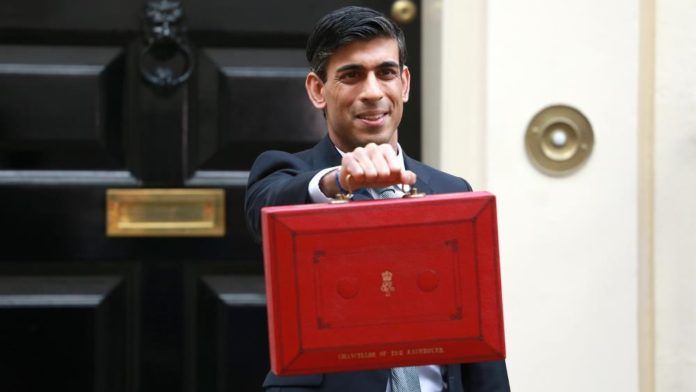The Construction Leadership Council (CLC) has addressed the Chancellor of the Exchequer, Rishi Sunak, with regards to the upcoming spring budget, explaining while a difficult year is ahead, the Council is focused on several key interventions it believes will drive immediate economic growth and market confidence.
The CLC said it welcomes the government’s long-term recognition of the vital role construction plays in the economy and considered how the sector could most effectively support the UK’s recovery in line with key policy priorities to achieve net zero, building safety, levelling up, and to stimulate economic activity and protect jobs.
Firstly, it called on the government to build on its £9.2 billion national retrofit programme to create a long-term plan for carbon reduction for homes.
For properties not covered by the programme, the CLC would welcome a ‘Help to Fix’ interest-free loan scheme, predicated on energy efficiency, to improve the UK’s existing housing stock.
Additionally, training should be at the centre of any future national retrofit interventions, to equip the construction workforce with the skills needed to meet net zero ambitions. It will be essential that the government works with industry to ensure this, including through clear commitments in the next Spending Review.
Regarding the government’s Clean Growth Strategy, which estimates that cost effective energy efficiency measures in the commercial property sector could save up to £6 billion by 2030, the CLC thinks now would seem an ideal time to incentivise such works as businesses adapt to new ways of working.
There is now a need to repurpose business space to have a role in stimulating the economy. There are several ways in which the capital allowances regime could be used to do this.
One suggestion is a new ‘Green Pool’, which expedites relief for works which enhance the sustainability credentials of a building.
Another is that the Annual Investment Allowance (AIA) threshold could be held at £1 million, rather than plans to reduce it to £200,000 – or alternatively, a higher threshold could be targeted to facilitate tax relief on typical retrofitting works – for example, through a ‘Green AIA’.
Regarding expansion of the Building Safety Fund, with almost 3,000 applications for the remediation programme, there is insufficient funding to ensure that all eligible buildings are remediated.
To prevent the grant awarding process from becoming a lottery for residents, the CLC strongly urges an increase in the funding for the programme to cover the remediation of all eligible buildings and other matters.
Furthermore, the Council is also calling for Reverse Charge VAT to be withdrawn to help secure economic recovery for the long term.
The implementation of Reverse Charge VAT in April will restrict cashflow in the industry, especially to the smallest firms, at an extremely critical financial period for many businesses. This policy risks reversing any recovery industry has made from the pandemic, and will limit the scope for protecting and creating jobs across the UK.
NFRC reacts
Commenting on the CLC’s budget submission, James Talman, chief executive officer of the National Federation of Roofing Contractors, said: “We worked closely with the CLC to develop several of the proposals included in their budget submission, to incentivise the retrofitting of commercial and industrial buildings, such as a Green Annual Investment Allowance and a more attractive Structures and Buildings Allowance.
“If we are to reach our net zero targets by 2050, we must make sure all of our buildings, including commercial and industrial buildings, are fit for purpose, not just our homes. The policies set out in the CLC’s budget submission, would give businesses a strong tax incentive to upgrade their properties to the highest energy efficiency standards – helping them not only to save on bills, but reduce their carbon footprint at the same time. Roofing and cladding contractors would be central to delivering these upgrades.”
James continued: “We also strongly support the CLC’s call for a rethink of Reverse Charge VAT. This policy will cause great financial distress to many roofing contractors, at the worst possible time for many.
“We urge the Chancellor to seriously consider the CLC’s recommendations ahead of the upcoming Budget. The construction industry has worked hard through this pandemic, and helping to keep the economy going, the government should now show their appreciation.”




